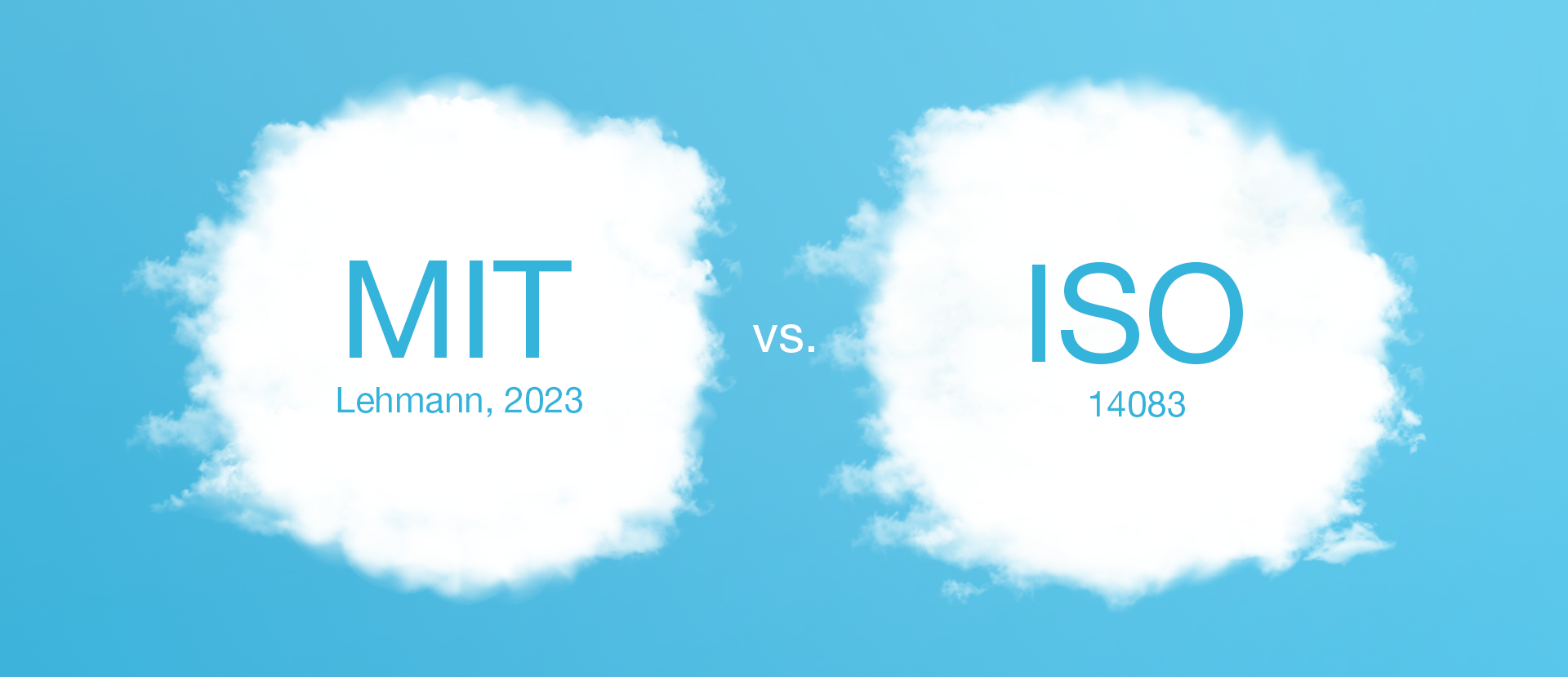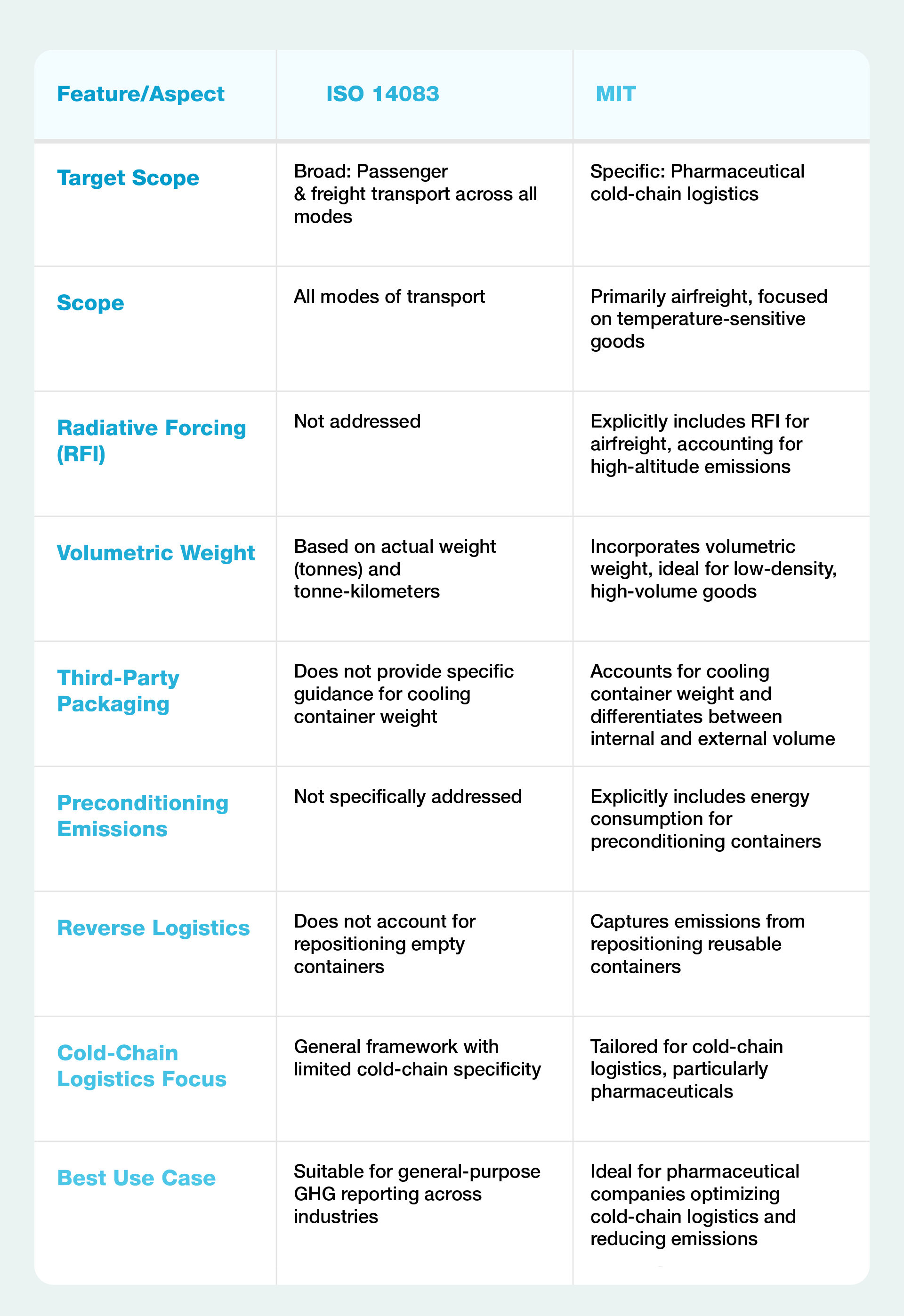In today’s logistics landscape, accurately accounting for carbon emissions is no longer optional—it’s essential. The pharmaceutical industry, particularly within cold-chain logistics, faces unique challenges in managing its carbon footprint. Temperature-sensitive goods, such as vaccines and medical products, require precise temperature control and often depend on airfreight, which can lead to significant emissions if not properly managed. Without accurate carbon accounting, these emissions can be underestimated, leading to a misleading picture of environmental impact and hampering efforts to meet sustainability goals.
Two key methodologies stand out when quantifying carbon emissions in logistics: ISO 14083 and the MIT (Lehmann, 2023). Both offer valuable frameworks, but they differ in how they address the specific requirements of pharma logistics. Accuracy is where these methodologies diverge the most, and understanding the differences is crucial for optimizing carbon reporting and reducing emissions.
Why Is Accuracy in Carbon Accounting Important?
Accurate carbon accounting in cold-chain logistics is essential for several reasons:
- Better Decision-Making: Precise data allows businesses to identify the key sources of emissions, such as container preconditioning, airfreight, or packaging, and make informed decisions to reduce carbon output.
- Regulatory Compliance: Accurate reporting is critical for complying with tightening regulations around carbon emissions. It helps avoid financial penalties and demonstrates a commitment to sustainability.
- Operational Efficiency: Accurate tracking helps companies identify inefficiencies, optimize logistics operations, and reduce their overall carbon footprint.
- Building Trust: Transparent emissions reporting builds trust with stakeholders and consumers, showing a commitment to reducing environmental impact.

Preparedness
ISO 14083 is a broad, global framework designed for general-purpose GHG reporting across industries and transportation modes. While it offers consistent reporting, its general nature limits its precision for pharma logistics. It overlooks critical factors such as radiative forcing, volumetric weight, third-party packaging, or reverse logistics – all essential in the complex pharma supply chain.
In contrast, the MIT methodology is tailored specifically for pharma logistics, offering a more granular approach to carbon accounting. It captures the nuances of airfreight emissions with radiative forcing, includes volumetric weight calculations, and incorporates reverse logistics— making it significantly more accurate for industries like pharmaceuticals. By enabling more informed decisions on container selection, route optimization, and network balancing, it supports also a more sustainable and efficient cold-chain logistics process.
Comparing the Methodologies: ISO 14083 vs. MIT

Conclusion: Accuracy Matters in Cold-Chain Logistics
Both ISO 14083 and MIT (Lehmann, 2023) play important roles in carbon emissions reporting. ISO 14083 offers a broad framework suitable for general logistics operations across multiple sectors. However, MIT provides greater accuracy and tailored insights for pharma logistics. Its focus on container-specific emissions, volumetric weight, reverse logistics and comprehensive environmental impact makes it the superior methodology for industries dealing with temperature-sensitive goods.
For companies in pharma logistics, adopting the MIT methodology or using it alongside ISO 14083 could significantly enhance emissions reporting accuracy and operational efficiency. As pharma logistics continue to grow in importance, having the right tools to track and reduce emissions will be key to achieving sustainability goals and complying with evolving regulatory standards.
Check out our cutting-edge tool, DECARBONIZE – based on the MIT methodology.
Written by Michael Hegglin and Andrea Muñoz